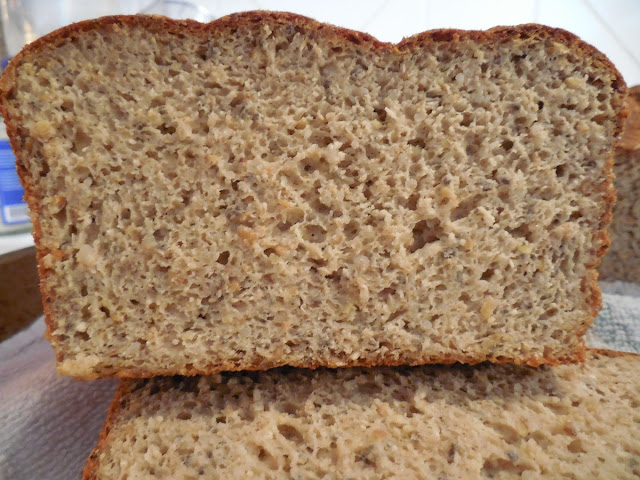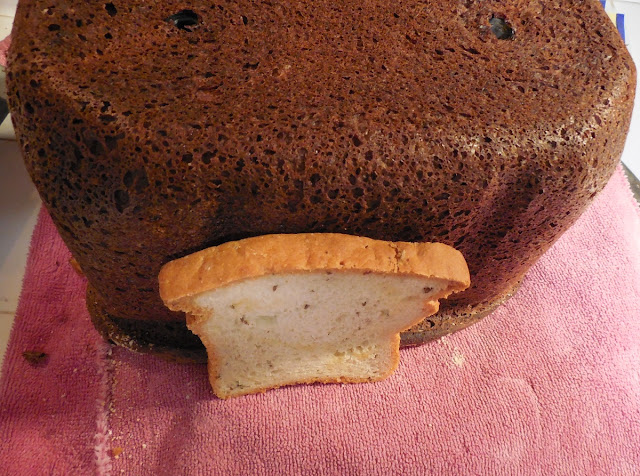Ketogenic Diet Part 1: Versus the DASH Diet
 |
| https://www.freepik.com/free-photo/beach-background-with-coconuts_2373126.htm Designed by Freepik |
For several reasons I've decided to embark on a multi part series on the Ketogenic Diet. I've always wanted to, but I wondered if it was off topic. And I argued with myself that there's plenty of information out there already so why should I parrot it? I also don't think that everyone should "go keto" but I do wish everyone would stop disparaging it.
However, it's become obvious to me that many people are under the mistaken impression that the Ketogenic diet is some kind of unscientific fad, instead of a medical diet on par with the Gluten Free diet for Celiacs, or the low-fiber diet for diverticulitis, or the low-vitamin K diet for people on warfarin, or the low FODMAP diet for IBS, etc. The number one mistake made is the assumption that keto a "high protein" diet. It most certainly isn't. But before I launch into myths about it, let's talk about how it differs from the more common DASH diet.
If you're sick enough to have a neurologist (I am), you may have noticed that diet advice is never offered. If you heard about the book Grain Brain by the notable neurologist David Perlmutter MD, you might have discussed the "Keto" diet with your neurologist. And that's probably the moment when you realize that diet advice depends on what your health goal is. Grain Brain was suggested to me by a prominent local neurologist, but only AFTER I already asked what he thought of the Ketogenic diet. So if you have a neurologist, I urge you to discuss it with them, they may not be willing to volunteer the information, but if you already know, they will probably help you out.
If you ask a family doctor for diet advice, they will default to offering standard advice for heart disease prevention (low fat, low salt, free of processed foods, and usually based on grains). But every neurologist I've ever known has been a booster for the ketogenic diet, or at least approved of it. So which diet you choose for your health is based on what your health goals are, and what your ethnic preferences are.
For me, I was having disabling migraines until I read this book by a doctor who applies the Ketogenic Diet not only to children with epilepsy, but adults with migraines too. The author practices medicine at Johns Hopkins, as does his coauthor. (PDF, CV) So, anyone who tells you the keto diet is a fad or a scam or doesn't have enough evidence behind it should ask these two authors why they have a department devoted to the keto diet at Johns Hopkins.
In particular, it's effective for diabetes and obesity, assuming there aren't other problems like thyroid, liver or gastrointestinal disease, which need to be treated, because scientific studies remove such people from their study so they limit "confounding effects." This claim, is not only patient experiences, often shared on r/keto in reddit, but there's science behind it. (The authors of that article, include a physician at Duke). It's also been the experience of many women that keto cures PCOS and reverses infertility without the need for expensive fertility treatments. I'll explain more about it in subsequent parts of this series. But it should be clear that the Keto diet is not a fad, but a medical diet that's sometimes necessary for some people and children.
The basic premise of the keto diet, is that the body can use either (or both) carbohydrate or fat as a fuel, and usually uses both. These days we mostly use carbohydrate for energy in our diet (energy = calories), but it's possible to use almost entirely fat for energy. This has been true since the dawn of humanity. If we couldn't do this, we'd have died out in the last Ice Age when there wasn't any vegetation to support a carbohydrate centered diet.
And there are Eskimos and remote tribes in Siberia that still use a primarily fat-fueled diet. When these indigenous people abandon their traditional diet, they often suffer obesity and illness. If you push the traditional fat-fueled diet far enough, you arrive at a Ketogenic diet which is so low in carbs that it has therapeutic effects on the human body, especially the nervous system.
The Ketogenic Diet is used in the treatment of Epilepsy and Migraines today, and once was used to treat diabetes before insulin was available. It's also in wide use now as a weight loss diet, and I think this is the source of the derision that's directed at it. However, it's a diet some people need to survive just like Celiacs need a gluten free diet.
You might have come to the realization that the standard USDA food advice is not for everyone from many directions. Someone might have developed diverticulitis and suddenly they were told to avoid nuts, grains and foods high in fiber. That's because those things can get stuck in diverticuli pockets and cause an infection that can become life threatening if it bursts. Someone else may be told to avoid all gluten containing grains because it drives gut damage in Celiac disease, or because it irritates the colon in IBD (that would be Ulcerative Colitis or Crohn's Disease). Yet another person may be told to avoid FODMAPS because they cause IBS symptoms.
The current idea for how best to prevent (but not cure) heart disease is a diet called DASH. If you ask any random dietician or health professional, this is the diet they will offer you first. It's basically the same advice as ever,low fat, low salt, lots of grains. But, it's been criticized for failing to improve insulin sensitivity, which is worse for the heart than eating a normal amount of fat and salt. By normal, I mean, what would've been normal for your grandparents or great grandparents.
Here's a quote from the conclusions of this article: https://www.ncbi.nlm.nih.gov/pmc/articles/PMC3767170/ (local science!)
"Adoption of the DASH dietary pattern is effective in lowering blood pressure in individuals with higher than optimal blood pressures. Whether the DASH diet also improves metabolic abnormalities associated with hypertension, such as insulin resistance, is less clear. A number of trials have demonstrated that increasing exercise combined with a diet to encourage weight loss can reduce the incidence of diabetes in susceptible individuals."
and earlier in the article:
"A significant inverse association of the DASH score with incident diabetes over 5 years of follow-up was observed in whites, but not in blacks or Hispanics and not in the study cohort as a whole."
The article in general sounds supportive of DASH for lowering blood pressure via diet. But here are some simple facts you can google for yourself:
1. If you switch to no-salt (potassium chloride, instead of sodium chloride), and make no other changes, your blood pressure will decrease, as long as you stay consistent with how much no-salt you use each day.
2. If you exercise and make no other changes, your insulin sensitivity will increase.
3. "Optimal" blood pressure is a hotly debated topic and has changed in the past few decades, but if I got into all that I'd never get to the rest of this article.
4. Have you noticed that anything positive said about the DASH diet is preceded by the word "overweight" and not the word "obese"? In contrast, the Keto diet is specifically mentioned as capable of reversing obesity for some people.
None of these things has anything to do with how much fat is in your food or whether or not you base your diet on "healthy grains."
Unfortunately, healthy lifestyle advice is full of superstitions, even if given by a doctor or dietician. For some, like me, who are already obese, or already have significant health challenges, this is not the way out of the hole. The path back to health once you've lost it is not the same as the path to keep your health in the first place. And many people just 'tune out' when they get advice that they know is bad for them, even though it's "good advice" for most people. The most dangerous thing you can do to a sick person is blame them for not eating right or exercising enough. A chronically sick person has tried that already. But the emotional abuse continues because it saves face for modern medicine.
Let's get one thing straight: Nobody wants to be sick. Nobody would pay exorbitant sums to alternative MD's such as functional medicine doctors because they enjoy it. And nobody hates exercise so much that they would rather die in agony than take a walk. The system has failed some people, so let's stop the blaming. If the system worked for everyone, then nobody would need DIY health. The connectivity of the internet has revealed the extent of unsuccessfully-treated chronic illness and the malice of investors in healthcare when it comes to putting profit over wellness.
The advice to use the DASH diet for elderly people is particularly annoying to me because it has such a bad effect on nerves and we're in the middle of an epidemic of Alzheimer's and other forms of Dementia. It's also my experience that basing your diet on carbohydrates and "heart healthy, low fat" chicken drives UTI (urinary tract infection). In 2013, a study was published showing that 65% of chicken breasts in grocery stores were contaminated by E. coli and that it was likely to be an antibiotic resistant strain, and that it was probably the cause of the spike in UTI 's, and the antibiotic resistant superbugs.
The risk of UTI is worse for women because a UTI can cause temporary dementia in many elderly women. If that woman was living independently, she can lose the ability to be independent. If she was already in a nursing home, she can lose the compassion of the staff. This happened to a relative of mine and is very common, ask any experienced CNA who works with the elderly. Or read more here: https://www.healthline.com/health/uti-in-elderly#symptoms
Due to the current political climate I'm even more upset by the second quote from that article (in blue, above). Here's another instance where persons of color are being given advice that works only for white people, and has no significant benefit (for diabetes prevention) when you lump the data together without regard to race/genetic background. We're not all the same. And differences in culture and eating habits as well as metabolism do exist.
So, OK, tell white people that DASH works to prevent diabetes, for them, but don't try to paint everyone with the same medical brush. That's outdated thinking. The human genome project has shown us how the smallest changes in DNA can lead to big changes in lifetime health, but not because it's "bad genes." Instead it's because we make assumptions that aren't valid, and give bad advice to some people.
Keep the faith. By that I mean, have faith in yourself. Your instincts are right -- for you.
Epilogue: OK so where do I go for good information, recipes, etc?
Here are two websites that are must-see if you're considering the Ketogenic diet
Be careful when you google for this one, there are a lot of copycat sites with similar names, This is the original Ketogenic Diet Resource. Most of the ones with similar names are scammy.
This blog and associated commercial websites has been around for 11 years and posts something new every day. It's Mark's Daily Apple, and Mark is a former endurance athlete.
Between these two sites, you will discover many more, but always be aware that the Atkins Diet is orthodox medicine's favorite hatred totem. So be very cautious about what you believe. These two sites I've found to be far better than my greatest expectations, and they have continued that way.
Edit: An interesting link from the Mark's Daily Apple blog. There is evidence that the keto diet along with inducing ketosis with MCT oil, may be helpful in the adjunctive treatment of psychiatric disorders. Ketosis certainly calms the nervous system for many people.
A Keto Summit (convention) occurred in Salt Lake City in early 2019, some of the speeches can be viewed here.
Other Articles in This Series
Part 1: https://www.nixgluten.com/2018/10/ketogenic-diet-part-1-versus-dash-diet.html
Part 2: https://www.nixgluten.com/2018/10/ketogenic-diet-part-2-gallbladder.html
Part 3: https://www.nixgluten.com/2018/10/ketogenic-diet-part-3-reality-check.html
Transitioning example, 1 day menu: https://www.nixgluten.com/2019/02/my-keto-day.html




